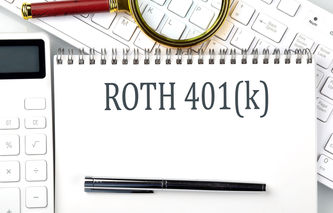Basic Retirement Guides
- The Financially Independent Retire Early (FIRE) movement is popular for good reason: who doesn’t want to take control of their life and become financially independent?
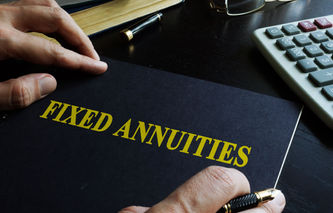 A fixed annuity is an insurance contract in which the issuing company promises to make fixed dollar payments to the contract holder, the annuitant, for a pre-determined length of time. In return for payment of the contract premium, the issuing company also guarantees both the earnings on the account and the principal balance.
A fixed annuity is an insurance contract in which the issuing company promises to make fixed dollar payments to the contract holder, the annuitant, for a pre-determined length of time. In return for payment of the contract premium, the issuing company also guarantees both the earnings on the account and the principal balance. A poorly performing economy often forces people to look for short term sources of much needed cash. That's one of the reasons selling pension benefits is growing in popularity. But before entering into any agreement to sell a pension, it's important to understand the real cost of these loans. In this article, we're going to talk about pension selling programs. As part of that discussion, we'll differentiate between retirement income and loans. Next, we'll describe the typical structure of these deals, eligibility, and the life insurance requirements that may be placed on pensioners. Finally, we'll summarize the pros and cons...
A poorly performing economy often forces people to look for short term sources of much needed cash. That's one of the reasons selling pension benefits is growing in popularity. But before entering into any agreement to sell a pension, it's important to understand the real cost of these loans. In this article, we're going to talk about pension selling programs. As part of that discussion, we'll differentiate between retirement income and loans. Next, we'll describe the typical structure of these deals, eligibility, and the life insurance requirements that may be placed on pensioners. Finally, we'll summarize the pros and cons...- When it comes to withdrawal rates from a retirement account, the rule of thumb is 4% of the starting balance without fear of depleting the account. This rule of thumb has been around for quite some time, and many individuals might be wondering if these old rules still apply today. Using the correct rate is important, because the retiree needs to balance the risk of running out of money with living too frugally in retirement. In this article, we're going to help answer the question: How much can I withdraw from my retirement account each year? That answer will apply...
 Keogh plans allow self-employed individuals, or small businesses, the opportunity to provide employees with retirement savings benefits. Keogh plans are sometimes referred to as qualified plans, or HR10 plans, and their rules are quite different from those that apply to Individual Retirement Accounts (IRA).
Keogh plans allow self-employed individuals, or small businesses, the opportunity to provide employees with retirement savings benefits. Keogh plans are sometimes referred to as qualified plans, or HR10 plans, and their rules are quite different from those that apply to Individual Retirement Accounts (IRA).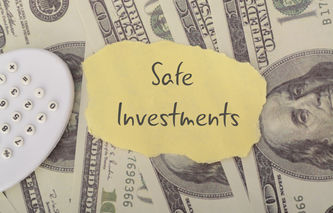 It's somewhat ironic that retirees often worry about longevity. They want to live a long and rewarding life, but if that comes to fruition, then they need to worry about outliving their assets. That's the primary reason many retirees invest in annuities. Unfortunately, those same annuities didn't protect against inflation, until recently.
It's somewhat ironic that retirees often worry about longevity. They want to live a long and rewarding life, but if that comes to fruition, then they need to worry about outliving their assets. That's the primary reason many retirees invest in annuities. Unfortunately, those same annuities didn't protect against inflation, until recently. As workers approach their peak earning years, many begin to think about questions like "When is the best time to retire?" We hear stories all the time about people living longer, which is good news. Individuals still thinking about retiring at age 62, need to figure out if their retirement plans are taking this new information into account.
As workers approach their peak earning years, many begin to think about questions like "When is the best time to retire?" We hear stories all the time about people living longer, which is good news. Individuals still thinking about retiring at age 62, need to figure out if their retirement plans are taking this new information into account. Equity-indexed annuities, or EIA, are a unique type of annuity. It's one that's based on a stock market index, such as the S&P 500, Dow Jones Industrial Average, or the Russell 1000. As a reminder, an annuity is defined as a contract with an insurance company in which the annuitant, or contract holder, agrees to make a payment or series of payments. In exchange, the insurance company agrees to supply the contract holder with a future source of income.
Equity-indexed annuities, or EIA, are a unique type of annuity. It's one that's based on a stock market index, such as the S&P 500, Dow Jones Industrial Average, or the Russell 1000. As a reminder, an annuity is defined as a contract with an insurance company in which the annuitant, or contract holder, agrees to make a payment or series of payments. In exchange, the insurance company agrees to supply the contract holder with a future source of income.- Anyone working for more than ten years has probably daydreamed about retiring early. But everything is relative, and 35-year-olds are going to have a different definition than a 45-year-old. And what exactly is retirement anyway? Does that mean switching jobs, or completely checking out of the working world?
- To many of us, the ultimate measure of a successful career was to retire a millionaire. But it takes more than just dreaming, and a big salary, to retire with that much money. It takes discipline and time.
Calculators
- “It’s only $250 a month!”
- This retirement withdrawal rate calculator requires the user to supply only two inputs: a retirement portfolio mix and the desired payout period. Using this information, the calculator provides the likelihood the portfolio will successfully support withdrawal rates ranging from 3 to 8%.
- This calculator can help you compare the future value of your Social Security benefits under different retirement age scenarios. The calculator can accommodate three retirement ages (early, normal, and delayed), along with the expected annual benefit at each age. Using this information, along with a projected ending age to collect benefits, the tool can provide the future value of each option.
- You can use this simple retirement fund calculator to figure out how much you need to contribute each year to your retirement fund to reach your desired funding goal. The calculator uses your current age, expected retirement age, current retirement funding, desired funding at retirement, and annual return on investment to project the annual funding value.
- This calculator allows you to see the difference between a Roth IRA versus a traditional IRA in terms of annual income. This Roth vs. Traditional IRA calculator allows you to figure out how much retirement income you can expect from each of three types of retirement accounts on an after-tax basis.
- This retirement withdrawal calculator can help you figure out how much money you can withdraw from your retirement fund each month. Using your retirement age and funds at retirement, the calculator allows you to calculate a monthly income stream you can receive from this money. The calculator accommodates any pension income or Social Security you'll receive. The calculator also allows you to evaluate your monthly retirement income using a scenario that leaves money in your estate.
- This retirement savings calculator can help you figure out how much money you should save each year to reach your retirement income goals. The calculator uses your current age, household income, and current retirement assets to develop an annual retirement savings target.
- You can use this retirement fund balance calculator to figure out how much money you will have in a retirement fund, given a fixed annual contribution. The calculator uses an estimate of your years until retirement, and expected annual return on the fund, to calculate the fund's balance at retirement.
- This present value of an annuity calculator can help you figure out the worth of a stream of payments extending into the future. By taking the annual payment, number of payment periods, and the interest rate (or discount rate) of the annuity, this tool can calculate the value of that annuity stated in terms of today's dollars.
- This minimum required distribution calculator can help you estimate your MRD for a traditional IRA, 401k, and 403b plan. By entering your current age, retirement account balance, and an expected return on investment for the account, this calculator provides an estimate of your current and future minimum required distribution payments.
- This millionaire calculator helps you figure out how much money you need to save each year to have a million dollars at retirement. The calculator uses your current age, retirement age, current net worth, and the expected annual return on investments to develop an annual savings target. Although this calculator defaults to a target net worth of $1 million, you can modify the value if you'd like to save more money.
- This IRA recharacterization calculator can be used to estimate the recharacterization amount in a given tax year. The calculator requires four inputs: the IRA starting balance, adjustments to that balance in the computation period, the amount to be recharacterized, and the IRA closing balance. Using this information, the calculator will figure out the adjusted opening balance, net income, and recharacterization amount.
- This immediate annuity calculator can help you figure out the fixed payments you'll receive from this type of retirement investment over time. An immediate annuity is a retirement income investment option typically offered by insurance companies. With this type of annuity, a large sum of money, or premium, is paid in exchange for a stream of income, which continues for as long as you live. This calculator provides the user with monthly, quarterly, as well as annual payments.
- This calculator can help you figure out the future value of a retirement account, as well as three possible annuities that could be funded using this money. Specifically, this calculator takes into consideration a fund's current balance, annual payments, and the duration over which payments will be placed into this fund. The resulting future value of this fund is then converted into three annuity terms: 20, 25, and 30 years.
- This early retirement calculator can help you to estimate how much money you will need to meet your retirement goals. The calculator uses your current age, target retirement age, household income, and current retirement assets to determine how much money you'll need in retirement savings as well as how much money you'll need to save each month to reach your goal.
- This CSRS retirement calculator can help you figure out your retirement benefits under the Civil Service Retirement System. Using your age at retirement, years of service, unused sick days and High-3 salary, this CSRS calculator will provide you with an estimate of your Basic Annual Annuity, Annuity with Survivor benefits, and the Survivor Benefits themselves, if they apply. The technical description for the formula used by this CSRS calculator is the "General Formula."
- This annuity calculator can help you figure out the fixed payments you'll receive from this type of retirement investment over time. The calculator uses the starting principal balance, the interest rate received on the annuity, and the payment period to calculate annual annuity payments. The calculator also displays the declining balance of the investment over time.
- This 401(k) savings calculator can help you to figure out how large your 401(k) plan might be at retirement. The calculator will predict the 401(k) fund balance at retirement age, along with the annual income you might expect from this type of account.
- A comprehensive retirement plan will have a mix of employer benefits, government plans, and retirement savings accounts. There are also many "rules of thumb" that prescribe how much income is needed once retired. From a practical standpoint, retirement income needs to last a lifetime, which might be longer than most people think. In this article, we're going to first start out by talking a little bit about life expectancy, and separate some of the fact from fiction. Next, we'll talk about retirement income, in depth, including how to go about calculating how much money is needed. We'll also talk about...
How Long Will My Money Last?
- Not everyone can be a multimillionaire. But, that doesn't mean you can't retire and live comfortably. But, how long can you live off 400k? Is it just a few years? Ten years? Longer? Can you retire with 400k? Let's discuss it and find out together!
- Ten million dollars is a lot of money. If you have that kind of net worth to retire on, you’re going to be okay. That’s pretty obvious.
- With the current cost of living for many people, you may be wondering how much you will need to retire. Can you retire with 1.5 million dollars? 1 million? 2 million? Exactly how much do you need? Let's talk about it!
- If you've ever wondered, "Can I retire at 40 with 1 million dollars?" I'm here to spill the secret and say yes, you absolutely can. But, there are a few things you should know before jumping in. Here's how you can retire earlier, with one million dollars, and still live well!
- Once you reach a certain amount in savings, you might start to wonder whether you can live off of it and retire early. But what about just a couple hundred bucks? How long can you live off 200k? Is it even worth trying??
Investing for Retirement
 Retirees that want to enjoy a richer lifestyle should give serious thought to tapping into their home's equity using a reverse mortgage. For many Americans, the single most valuable asset they own is their home, and reverse mortgages allow seniors to generate a steady stream of income. In this article, we're going to help answer the question: What is a reverse mortgage? We're also going to explain how these loans work, and discuss the different offerings on the market today. Finally, we're going to finish up with some information on how they're calculated, their income tax treatment, and the costs...
Retirees that want to enjoy a richer lifestyle should give serious thought to tapping into their home's equity using a reverse mortgage. For many Americans, the single most valuable asset they own is their home, and reverse mortgages allow seniors to generate a steady stream of income. In this article, we're going to help answer the question: What is a reverse mortgage? We're also going to explain how these loans work, and discuss the different offerings on the market today. Finally, we're going to finish up with some information on how they're calculated, their income tax treatment, and the costs...- The sheer number of offerings can be intimidating to anyone thinking about investing in a retirement plan for the first time. It's easy to get confused, especially when it comes to tax-advantaged plans versus employer plans.
Retirement Planning for Every Decade
 Anyone that started their retirement planning early in their career should be in very good shape by the time they reach their 40s. Individuals planning for the first time may be faced with serious catching-up to do. That being said, starting a plan in your 40s is perhaps the single most important step someone can take to prepare themselves for the future.
Anyone that started their retirement planning early in their career should be in very good shape by the time they reach their 40s. Individuals planning for the first time may be faced with serious catching-up to do. That being said, starting a plan in your 40s is perhaps the single most important step someone can take to prepare themselves for the future.
Retirement Plans
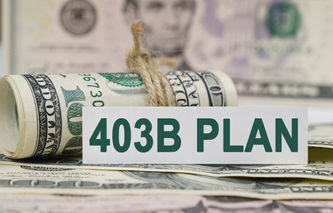 Under certain conditions, it's possible to obtain a loan from a 403(b) plan. But it's important to work closely with the plan administrator to make sure the loan isn't viewed as an early distribution. If that occurs, the distribution will be reported as income, and if the accountholder is under age 59 1/2, then a 10% tax penalty may apply.
Under certain conditions, it's possible to obtain a loan from a 403(b) plan. But it's important to work closely with the plan administrator to make sure the loan isn't viewed as an early distribution. If that occurs, the distribution will be reported as income, and if the accountholder is under age 59 1/2, then a 10% tax penalty may apply.- In this article, we're going to be reviewing the 403(b) contribution rules that have the greatest impact on a plan's participants. That discussion is going to include elective deferrals, after-tax contributions, maximum allowable contributions, as well as the 15-Year Rule. There are only two sources of money that can be directed to a 403(b) account: a salary reduction agreement, or an employer making contributions directly to the fund itself. Even though an employee can specify the paycheck contributions to their 403(b) plan, only an employer can make the actual contributions to their account. Plan participants cannot make direct deposits...
- A 403(b) account is a retirement savings plan, or tax shelter, for employees of tax exempt organizations. This includes public school systems, non-profit organizations, and employees of cooperative hospital services. Generally, the 403(b) can be considered the nonprofit organization's equivalent of the 401(k).
 A 457 plan is a retirement or pension plan that provides benefits to government employees as well as employees of tax-exempt organizations. Employees participating in 457 plans are allowed to defer their compensation on a before-tax basis through regular payroll deductions. Money placed in these accounts grows on a federally tax-free basis until withdrawn.
A 457 plan is a retirement or pension plan that provides benefits to government employees as well as employees of tax-exempt organizations. Employees participating in 457 plans are allowed to defer their compensation on a before-tax basis through regular payroll deductions. Money placed in these accounts grows on a federally tax-free basis until withdrawn. With such an uncertain future for Social Security, individuals look to the safety of retirement savings plans such as the 403(b). But there comes a time when an individual may need to take a distribution, or make a transfer, from their 403(b) account, and the rules they need to follow can be quite complex.
With such an uncertain future for Social Security, individuals look to the safety of retirement savings plans such as the 403(b). But there comes a time when an individual may need to take a distribution, or make a transfer, from their 403(b) account, and the rules they need to follow can be quite complex.- Back in 2006, then President Bush signed a $70 billion tax cut provision that changed the eligibility rules for Roth IRA conversions. Starting in 2010, taxpayers with a modified adjusted gross income in excess of $100,000 can now convert a Traditional IRA into a Roth IRA. The easing of the income limit provided individuals planning for retirement with more freedom. But as we'll soon demonstrate, there are some significant disadvantages of Roth conversions too.
- On July 26, 2007, the Treasury Department, in conjunction with the IRS, released a finalized set of 403(b) regulations. With a history dating back to the 1950's, this rulemaking effort was nearly 50 years in the making, and provides 403(b) participants with some long-awaited guidance.
 The 457(f) is a deferred compensation plan that allows eligible employers to contribute money on a pre-tax basis into investments that provide key executives with a retirement benefit. By doing so, these companies can help their executives defer payment of federal and state income tax on the money contributed into their accounts.
The 457(f) is a deferred compensation plan that allows eligible employers to contribute money on a pre-tax basis into investments that provide key executives with a retirement benefit. By doing so, these companies can help their executives defer payment of federal and state income tax on the money contributed into their accounts.
401(k) Guides
- Anyone planning to retire one day needs to consider enrolling in their employer's 401(k) plan. These plans are one of the premier ways to save money, thereby supplying individuals with a reliable source of retirement income.
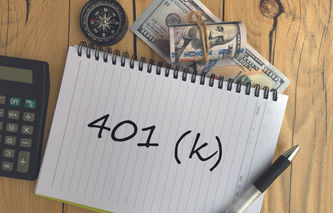 In this article, we're going to be discussing 401(k) withdrawals. This includes early withdrawals, and allowed distributions under current rules. We're also going to discuss potential tax penalties that may apply to early withdrawals. Pension plans such as IRAs and 401(k) plans were put into place by the government to encourage families to save money towards retirement. It only makes sense the government discourages the use of these funds for purposes other than retirement. In fact, the tax law imposes an additional 10% penalty on certain early distributions from these funds.
In this article, we're going to be discussing 401(k) withdrawals. This includes early withdrawals, and allowed distributions under current rules. We're also going to discuss potential tax penalties that may apply to early withdrawals. Pension plans such as IRAs and 401(k) plans were put into place by the government to encourage families to save money towards retirement. It only makes sense the government discourages the use of these funds for purposes other than retirement. In fact, the tax law imposes an additional 10% penalty on certain early distributions from these funds.- It's well known in the financial community that 401(k) plans are one of the premier benefits an employer can offer their workers. They provide employees a perfect tax shelter, and most plans even include an instant return on the employee's contributions. In fact, for many investors 401(k) plans should be their first stop for any money earmarked for retirement.
- For anyone that's thinking about contributing to their employer's 401(k) plan, but in need of more information, we have most of the 401(k) rules covered in this article. We use the word "most" because employers have some flexibility in how they can administer their 401(k) plans. In fact, only a plan administrator can provide all of the 401(k) rules that apply at a specific company. However, we can offer the general guidelines that will apply to anyone that participates in these plans at work.
- For many individuals, their 401(k) plans are the first and only place reserved for consistent and "real" savings. This is money put away, and never touched until retirement. But what happens if someone is faced with an unexpected expense? Is getting a 401(k) loan possible?
- Perhaps the single most important retirement account available to employees today is their 401(k) plan. In this article, we're going to discuss the current (2020 and 2021) 401(k) contribution limits, including catch-up limits, pre-tax and total contribution limits, as well as those that apply to highly-compensated employees.
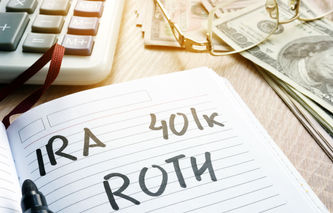 The Roth 401(k) was first made available to retirement planners back in 2006. Since that time, many employees have found themselves faced with the question: Should I start contributing to a Roth 401(k)? We're going to help answer that question by discussing its rules, contribution limits, withdrawals, distributions, as well as rollovers.
The Roth 401(k) was first made available to retirement planners back in 2006. Since that time, many employees have found themselves faced with the question: Should I start contributing to a Roth 401(k)? We're going to help answer that question by discussing its rules, contribution limits, withdrawals, distributions, as well as rollovers.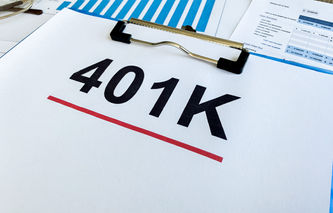 Borrowing money from a 401(k) plan just got easier; the only thing needed is a 401(k) debit card. When a financial hardship occurs, it's a relief to know one can borrow from their account. But retirement savings are just that: money set aside that's intended to provide income once retired. These two points of view are at the heart of this debit card controversy.
Borrowing money from a 401(k) plan just got easier; the only thing needed is a 401(k) debit card. When a financial hardship occurs, it's a relief to know one can borrow from their account. But retirement savings are just that: money set aside that's intended to provide income once retired. These two points of view are at the heart of this debit card controversy.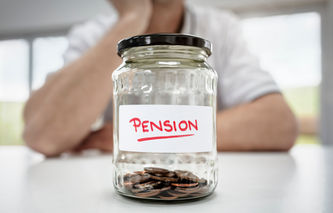 On February 20, 2008, the U.S. Supreme Court ruled that individuals have a right to recover 401(k) losses based on what were considered fiduciary breaches. This landmark decision means the 50 million Americans participating in a 401(k) plan now have a right to recover their loss if plan administrators don't fulfill what's considered their obligation to participants to manage their plans wisely.
On February 20, 2008, the U.S. Supreme Court ruled that individuals have a right to recover 401(k) losses based on what were considered fiduciary breaches. This landmark decision means the 50 million Americans participating in a 401(k) plan now have a right to recover their loss if plan administrators don't fulfill what's considered their obligation to participants to manage their plans wisely.- Individuals faithfully building their 401(k) plans at work can suddenly find themselves facing a financial hardship. This leaves them wondering: Is it possible to make a 401(k) withdrawal without incurring a penalty? Unfortunately, the answer to this question is not that simple.
IRA Guides
- In January 2014, the U.S. Tax Court rendered their interpretation of the one-per-year IRA rollover tax code provision. To allow taxpayers time to transition to this new interpretation, the Internal Revenue Service will apply this decision to rollovers taken after January 1, 2015.
 Moneyzine EditorOctober 4th, 2023
Moneyzine EditorOctober 4th, 2023 - A self-directed Roth IRA is defined as one where the accountholder determines where the money is invested. That's a fairly common arrangement when it comes to Roth IRAs.
 Moneyzine EditorDecember 16th, 2024
Moneyzine EditorDecember 16th, 2024 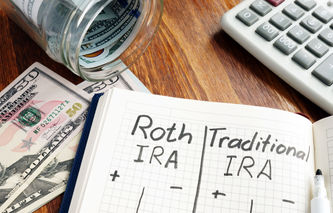 Funding a retirement account is an important part of the financial planning process. When it comes to choosing between a Traditional and a Roth IRA, it's important to make an informed decision, since it's vital to get the optimal future income benefit from the money placed into either of these plans.
Funding a retirement account is an important part of the financial planning process. When it comes to choosing between a Traditional and a Roth IRA, it's important to make an informed decision, since it's vital to get the optimal future income benefit from the money placed into either of these plans. Moneyzine EditorNovember 20th, 2023
Moneyzine EditorNovember 20th, 2023- A Traditional IRA is a savings plan that allows individuals to set aside money for retirement. In the case of a Traditional IRA, accountholders may also be offered an immediate tax shelter for the contributions made to their account.
 Moneyzine EditorOctober 4th, 2023
Moneyzine EditorOctober 4th, 2023 - Investors that prefer to maintain control over their money have some good news in the form of a self-directed IRA. This is an individual retirement account established with a stockbroker rather than a bank or an investment house.
 Moneyzine EditorDecember 16th, 2024
Moneyzine EditorDecember 16th, 2024 - In this article, we're going to discuss Roth IRA Contribution Limits. That discussion will address recent changes that affect Roth IRA accounts in 2020 and 2021, including income restrictions, as well as the limits on contributions.
 Moneyzine EditorDecember 16th, 2024
Moneyzine EditorDecember 16th, 2024  This article is going to cover the topic of IRA withdrawals. Here we're going to summarize the withdrawal or distribution rules that apply to a Traditional, Roth, and SIMPLE IRAs. We're going to talk about qualifying and minimum required distributions, exceptions to these rules, and possible income tax penalties. In the following sections, we're going to use the words distribution and withdrawal interchangeably. For the most part, IRA holders believe they are making withdrawals from their account, while in the "technical" sense, the IRS considers these distributions.
This article is going to cover the topic of IRA withdrawals. Here we're going to summarize the withdrawal or distribution rules that apply to a Traditional, Roth, and SIMPLE IRAs. We're going to talk about qualifying and minimum required distributions, exceptions to these rules, and possible income tax penalties. In the following sections, we're going to use the words distribution and withdrawal interchangeably. For the most part, IRA holders believe they are making withdrawals from their account, while in the "technical" sense, the IRS considers these distributions. Moneyzine EditorDecember 16th, 2024
Moneyzine EditorDecember 16th, 2024- Roth IRA rules are fairly straightforward, and they align with many of the retirement planning scenarios that an investor might encounter over time: eligibility, contributions, transfers, and withdrawals. Fortunately, this relatively short list covers most of the Roth IRA information individuals would ever need to understand.
 Moneyzine EditorDecember 16th, 2024
Moneyzine EditorDecember 16th, 2024 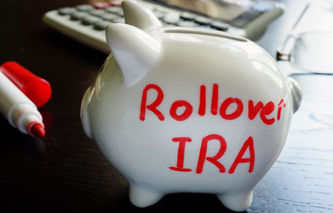 In this article, we're going to discuss IRA rollovers. We'll start off by briefly explaining why an IRA rollover might be necessary, as well as providing a definition of the term. We're then going to talk about the difference between a rollover and a transfer, and finish up with some of the rules that can help individuals avoid income tax penalties.
In this article, we're going to discuss IRA rollovers. We'll start off by briefly explaining why an IRA rollover might be necessary, as well as providing a definition of the term. We're then going to talk about the difference between a rollover and a transfer, and finish up with some of the rules that can help individuals avoid income tax penalties. Moneyzine EditorDecember 16th, 2024
Moneyzine EditorDecember 16th, 2024- The Roth IRA is perhaps the premier individual retirement planning tool and savings account offered today. In this article, we're going to discuss the full range of Roth IRA benefits, the basics of withdrawals, transfers, and contributions. Then we'll finish up with some comparisons between the Roth IRA, and employer sponsored plans such as the 401(k) and 403(b).
 Moneyzine EditorOctober 4th, 2023
Moneyzine EditorOctober 4th, 2023 - A SIMPLE IRA is a plan that gives smaller employers an easy way to contribute towards an employee's retirement account. The SIMPLE IRA allows the employee to make salary-reduction contributions, and employers can make matching contributions. In this article, we're going to discuss the benefits, eligibility, how to set up a SIMPLE IRA, as well as contributions and withdrawal rules.
 Moneyzine EditorOctober 4th, 2023
Moneyzine EditorOctober 4th, 2023 - In this article, we're going to talk about Roth IRA conversions. That discussion will include Roth IRA contribution rules, transfers, income limits for conversions, and their affect on income taxes owed. We'll also discuss when, and under what conditions, it might be a good idea to make a conversion.
 Moneyzine EditorDecember 16th, 2024
Moneyzine EditorDecember 16th, 2024  For anyone that's been wondering whether or not to fund a Roth IRA or a 403(b) plan, we're going to lay out some of the factors to consider before making that decision. They are both great retirement planning options, but there may be reasons for choosing to fund one type of plan versus the other.
For anyone that's been wondering whether or not to fund a Roth IRA or a 403(b) plan, we're going to lay out some of the factors to consider before making that decision. They are both great retirement planning options, but there may be reasons for choosing to fund one type of plan versus the other. Moneyzine EditorNovember 20th, 2023
Moneyzine EditorNovember 20th, 2023- Back in May of 2006, there was a significant change to the tax laws involving IRAs. Starting in the year 2010, all taxpayers can convert their Traditional IRAs to a Roth IRA. That's an opportunity that not everyone had in the past.
 Moneyzine EditorDecember 16th, 2024
Moneyzine EditorDecember 16th, 2024 - We've covered the specific rules for each type of IRA elsewhere on this website, but we've never put all of them together in one place. In this article, we are going to provide a summary of these general IRA rules; this information will apply to eligibility, contributions, as well as withdrawals.
 Moneyzine EditorOctober 4th, 2023
Moneyzine EditorOctober 4th, 2023 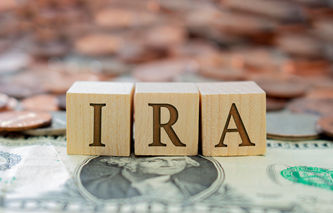 For a variety of reasons, it's sometimes necessary to recharacterize an IRA. One of the more common scenarios occurs when an individual is no longer eligible to make a tax deductible contribution to a Traditional IRA. Under these circumstances, the taxpayer may decide to recharacterize their Traditional IRA contribution as a Roth contribution.
For a variety of reasons, it's sometimes necessary to recharacterize an IRA. One of the more common scenarios occurs when an individual is no longer eligible to make a tax deductible contribution to a Traditional IRA. Under these circumstances, the taxpayer may decide to recharacterize their Traditional IRA contribution as a Roth contribution. Moneyzine EditorNovember 20th, 2023
Moneyzine EditorNovember 20th, 2023- In this article, we're going to discuss IRA contribution limits, which will include the recent changes for 2020 and 2021. We will also address two important IRA limits: one relating to household income, and a second dealing with the dollar value of the contributions themselves.
 Moneyzine EditorDecember 16th, 2024
Moneyzine EditorDecember 16th, 2024 - There are two related, but slightly different, 5-year rules that apply to Roth IRA withdrawals. The first has to do with earnings on contributions made to an account, while the second has to do with Roth IRA conversions.
 Moneyzine EditorDecember 16th, 2024
Moneyzine EditorDecember 16th, 2024

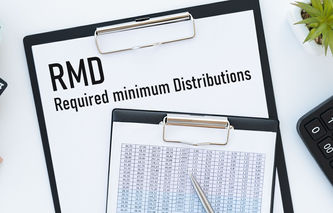




.jpg)







